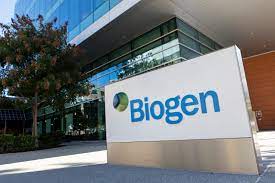Biogen (BIIB) is skyrocketing higher and generating plenty of buzz after the company and its Japanese development partner, Eisai, announced positive Phase 3 data for their Alzheimer’s Disease (AD) treatment, lecanemab. The study met its primary endpoint by reducing cognitive and functional decline by 27% after 18 months of treatment. This is not only potentially great news for BIIB and for AD patients, it’s also surprising news given the company’s recent disappointment with aduhelm.
Aduhelm, a once promising treatment for AD, was also co-developed with Eisai and received a controversial FDA approval in June 2021. If fact, many were stunned by the approval because an FDA advisory committee voted nearly unanimously against approving the drug in November 2020. Ultimately, though, aduhelm failed to gain market acceptance, especially after the Centers for Medicare and Medicaid Services (CMS) said that Medicare would limit its coverage of monoclonal antibodies for treatment of AD to only those patients who participate in clinical trials. Importantly, that decision applied to all drugs in that category.
Investors who were burned on the high hopes that surrounded aduhelm can be forgiven for feeling a bit skeptical about today’s developments, but this truly does look like a landmark event. Every secondary endpoint was also met in the study, while the incidence of amyloid-related imaging abnormalities-edema/effusion fell within the expected range. Other key points to consider include:
If approved, BIIB will have to split the profits evenly with Eisai. That obviously limits BIIB’s profit potential, but the addressable market is huge with approximately 6.5 mln people in the U.S. alone suffering from AD. Furthermore, little progress has been made over the years in treating AD, limiting lecanemab’s competition. The bottom line is that lecanemab would likely become a multi-billion drug for BIIB should it receive FDA approval.
The pathway to gaining FDA approval and market acceptance for a new drug can be a rollercoaster ride, as we saw with aduhelm. If lecanemab does receive FDA approval, there will be another hurdle to jump in the form of the CMS’s policy of not covering amyloid-targeting drugs. Perhaps the CMS will change its tune based on the positive trial results for lecanemab. The main takeaway, though, is that today’s unexpected good news may be a game-changer for BIIB and for those suffering from AD.





